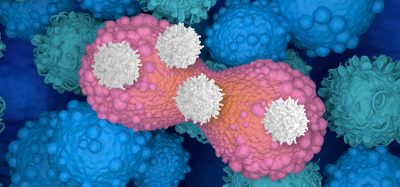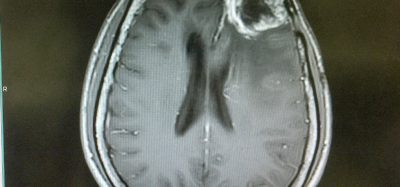Potential therapeutic target identified for stomach cancer
Posted: 22 December 2020 | Victoria Rees (Drug Target Review) | No comments yet
A team has shown that removing the inflammatory signalling protein TNF in a laboratory model prevented stomach cancers from becoming severe.


Researchers have identified a key molecular regulator involved in the progression and spread of stomach cancer, suggesting a potential new approach to treat this devastating disease. The study was conducted at the Water and Eliza Hall Institute (WEHI), Australia.
The team discovered that removing the inflammatory signalling protein TNF in a laboratory model prevented early stage stomach cancers from progressing to a more severe stage that, in humans, is much harder to treat. This discovery suggests that stomach cancers may respond to medicines that inhibit TNF.
“Human stomach cancer can be caused by prolonged inflammation and our model of stomach cancer, that is driven by the absence of the protein NF-KB1, accurately reflects the sequential changes seen in human stomach cancer as it progresses from an early, inflammatory stage. We discovered that invasive stomach cancers contain high levels of various factors involved in inflammation, including four soluble proteins called cytokines,” said lead researcher Dr Lorraine O’Reilly. “By removing each of the four cytokines that were elevated in our model, we could assess how important each one was. This revealed that the cytokine TNF was required for the progression of stomach cancer.”
Biomarkers are redefining how precision therapies are discovered, validated and delivered.
This exclusive expert-led report reveals how leading teams are using biomarker science to drive faster insights, cleaner data and more targeted treatments – from discovery to diagnostics.
Inside the report:
- How leading organisations are reshaping strategy with biomarker-led approaches
- Better tools for real-time decision-making – turning complex data into faster insights
- Global standardisation and assay sensitivity – what it takes to scale across networks
Discover how biomarker science is addressing the biggest hurdles in drug discovery, translational research and precision medicine – access your free copy today
“Many therapies have shown great promise in treating inflammatory diseases by targeting specific cytokines,” lead researcher Dr Tracy Putoczki said. “Excitingly, there are already medicines in clinical use that block TNF, most notably for the treatment of rheumatoid arthritis. Our research suggests these therapies could be an effective and safe way to prevent the progression of stomach cancer to more severe, invasive forms. This is an area we are looking at in more detail.”
The research was published in the journal Gastroenterology.
Related topics
Drug Targets, Oncology, Protein, Proteomics, Targets
Related conditions
Stomach cancer
Related organisations
Walter and Eliza Hall Institute (WEHI)
Related people
Dr Lorraine O'Reilly., Dr Tracy Putoczki








